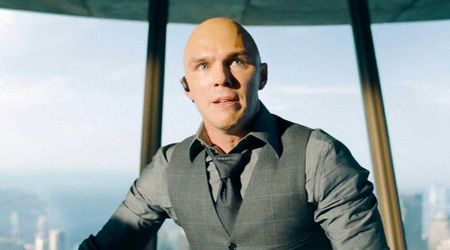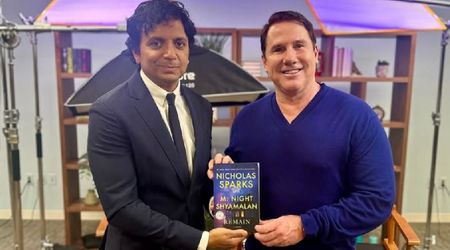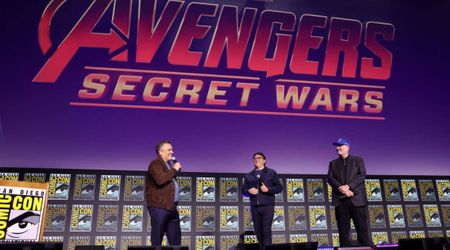'2040' Review: An optimistic documentary on potential solutions for climate change leaves us feeling inspired

When it comes to the future, almost everything is uncertain, which is why fighting anthropogenic climate change seems like such a daunting task. We know about rising emissions and we know how Big Oil and Big Agriculture lead to those emissions, but for the most part, we don't know what changes we can make to help fight this.
Of course, there is a lot of legalities and big corporations that come into the picture, but what if everything and everyone worked out in a way to promote sustainable living? Again, the uncertainty leaves a daunting place to start from.
This is where Australian filmmaker Damon Gameau's documentary, '2040' comes in. In the film, Gameau asks a simple question: What will the world look like for his daughter in 2040? Will we still be debating the existence of climate change or will we be actively fighting and helping our planet become more liveable?
Gameau tries to answer those questions optimistically and to see what real solutions might be implemented then, he presents some of the technologies that are already in use -- technologies that could be scaled up to create worldwide solutions.
First, we see Gameau travel to Bangladesh where a technology called Solshare helps small communities build micro-grids to share energy or perhaps buy and sell within the community. Excess energy from solar panels installed in houses that can afford it can then be transferred to those that can't afford to. These micro-grids can then be interconnected and create wider participation, leading to self-reliance within those communities.

To show how self-sustainable solutions help fight climate change, Gameau uses the "doughnut model", a framework developed by economist Kate Raworth who uses the outer ring of a doughnut and the hole in the middle to explain how self-sustainable solutions give communities the opportunities to live within that framework, instead of encroaching on additional resources. Multiple factors come into play here, which Gameau explains throughout the film.
Then Gameau talks about autonomous vehicle disruption. By 2040, an additional one billion vehicles are estimated to be added to our roads. He explains that our cars are stranded assets, by which he means they don't generate any economic value when not in use, which is for the most part of the day. If instead, we moved to a model where we rent self-driving cars on demand (much like we have on-demand entertainment), this could lead to a large reduction in the number of vehicles.
Fewer vehicles mean more space and parking lots that have been used for cars could instead be used for other purposes such as farming and perhaps nature-based recreation.
Gameau then talks about regenerative farming. Contrary to popular belief, big agriculture causes more emissions than fossil fuels, that is not to say that the latter does not contribute significantly. He explains that regenerative farming would lead to greener practices — and even better, lead to healthier animals that will be allowed to feed on nature instead of grains (a third of the world's agricultural areas is used to grow animal feed). While a no-meat-diet is the best option for the planet, Gameau does not advocate that —instead, he understands that people have different choices and needs for their food habits.
Another solution brought up by Gameau is marine permaculture, which is the ocean farming of seaweed and kelp. When it comes to the advantages, they are plenty. They would counteract ocean acidification (which has risen due to rising levels of carbon in the atmosphere), they would be an excellent source of biofuel, and they could also be the solution for food security.

Of course, the biggest solution for climate change that is present today and if implemented effectively worldwide is quite simply, the empowerment of women and girls. As more girls are educated, the rise in population will gradually decrease. Moreover, it has been widely seen that empowering women lead to stronger societies.
In contrast to most climate change documentaries that we are used to seeing, '2040' is widely optimistic and perhaps a tad too idealistic. '2040' does not dive into the legal red tape and government-created barriers to effective climate change solutions. For example, Gameau points out that micro-grids are illegal in some countries, but does not elaborate on the same.
But perhaps, that is not the point of '2040'. If anything, it is a documentary to open the eyes of those who wonder whether fighting climate change would lead to a weaker economy. On the contrary, inclusive and effective ways to fight the rising emission levels will also help solve other issues plaguing our society, including hunger, poverty and energy insecurity. The best part of '2040' is that it is easy for the average person to understand all that it presents.
If there is one thing we would like to see, it is that Gameau continues to explore climate change in more documentaries and the problems that stand in the way of bringing out the effective implementation of solutions presented in '2040'. There is always more room for documentaries like '2040', which focuses on the message of fighting climate change on hope — hope that we can create a fairer society, hope that we can create a greener planet, and hope that we leave behind something better for future generations.
'2040' releases in virtual theatres on June 5.










